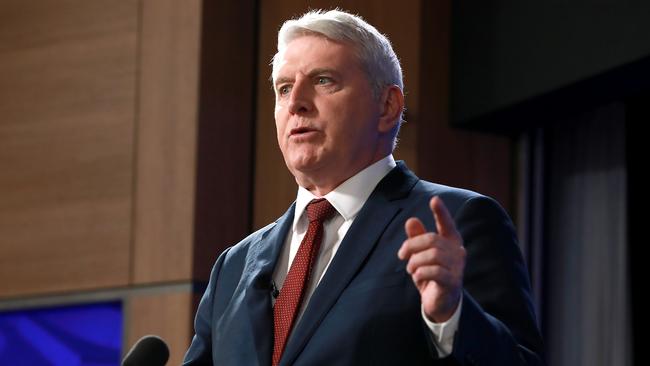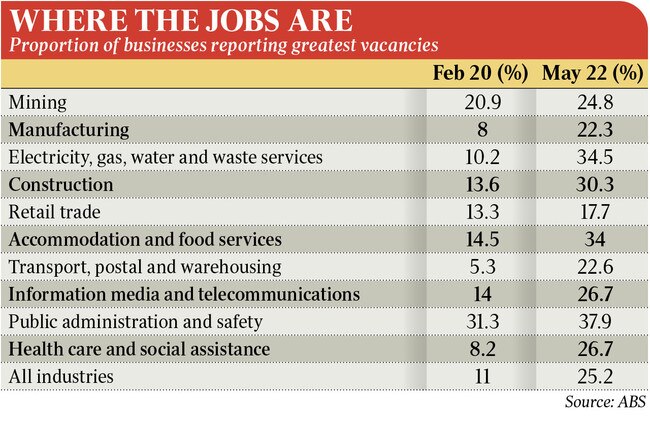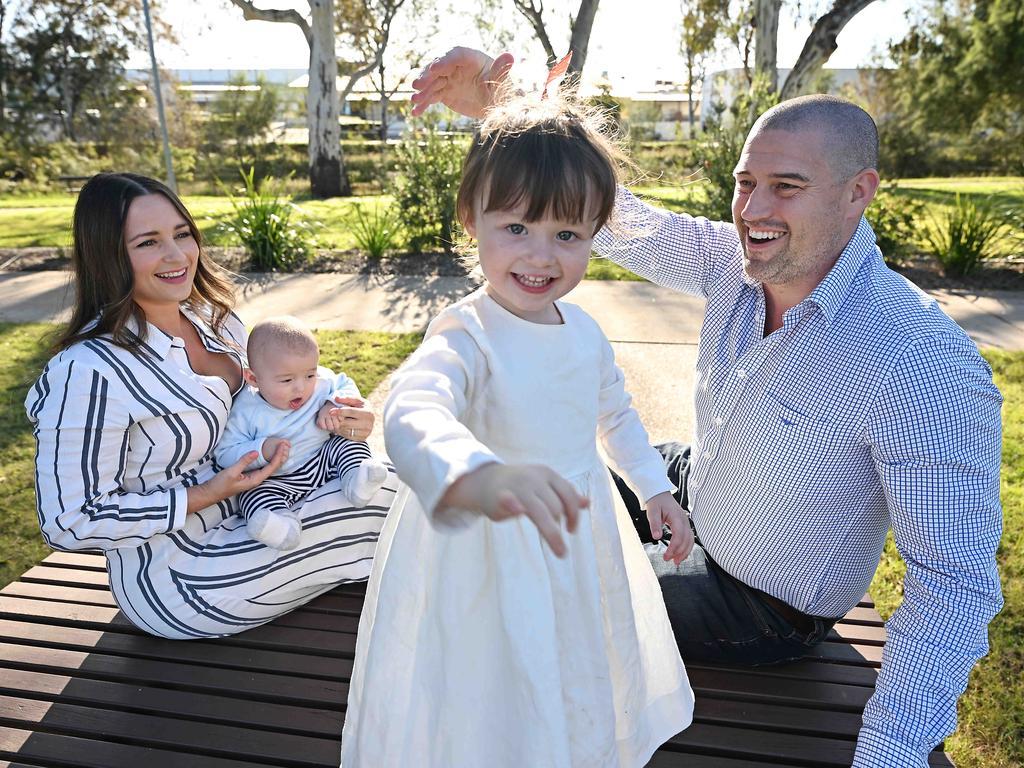Quick jobs fix: import more skills, Brendan O’Connor says
Skills Minister Brendan O’Connor supports bringing in more overseas workers to help fill immediate vacancies, ahead of a longer-term local fix.

Skills Minister Brendan O’Connor supports bringing in more overseas workers to help fill immediate job vacancies in key parts of the economy, ahead of a longer-term fix of training Australians in growth industries, including blue-collar trades, IT and healthcare.
Mr O’Connor said a short-term solution to worker shortages would need to include full restoration of the temporary and permanent migration schemes.
In comments that will buoy business, he said he did not believe there was a binary choice between training Australians and supporting migrant workers, and both were needed to help the economy grow.
Mr O’Connor said a lack of skilled workers was one of the biggest economic challenges facing Australia, with the government, unions and employers poised to come up with a comprehensive plan to tackle the issue at a jobs summit in September.
“I believe that there’s a combination of investing in skills in the labour market, and also relying on the restoration of the skilled migration streams,” Mr O’Connor told The Australian.
“I’ll be very supportive if we’re attending … to the things we need to attend to quickly and can be attended to quickly, in part, only through the restoration of the skilled migration stream.
“But it never should be, and never will be under a Labor government, at the expense of investing in skills in our existing labour market.
“It is never one or the other; it never should be one or the other.
“I think the previous government got a bit lazy and too reliant on those temporary skilled visas.”
Mr O’Connor said it was a mistake for the former government to allow droves of skilled migrant workers to leave Australia during the pandemic, arguing that they should have been considered for government support programs such as JobKeeper.
The push for more migrant workers comes as Home Affairs Minister Clare O’Neil on Sunday announced that international visitors no longer had to prove their Covid-19 vaccination status to be allowed in Australia.
“Removing these requirements will not only reduce delays in our airports but will encourage more visitors and skilled workers to choose Australia as a destination,” Ms O’Neil said.
The number of job vacancies reached a record 480,000 in May, according to Australian Bureau of Statistics data released last week.
This was a jump of 14 per cent since February and more than double pre-pandemic levels of about 225,000, with vacancies high across the economy including in construction, mining, healthcare, IT and retail.
There are 548,000 people who declare themselves as jobless.
With more than 40 per cent of blue collar trades suffering from worker shortages, Mr O’Connor said Australians were increasingly realising that a university degree was not the only way to obtain a fulfilling career.

“I think as a country we failed to properly appreciate and elevate and advocate the real benefits of taking the vocational, technical pathway to employment,” he said.
“The mindset has changed, not completely, but I think it’s getting a lot better.
“There is some great, well-remunerated work in the traditional trades.”
Net migration in the 2021 financial year led to a population loss of 89,000, with the Coalition’s March budget “planning” on hitting the permanent net migration cap of 160,000.
On top of low permanent migration, business leaders complained that processing times for temporary skilled migration visas had blown out from an average of eight days before the pandemic to more than 70 days.
The Business Council of Australia in February called for the 160,000-a-year cap on permanent migration to be lifted to 220,000 for the next two years, before reverting to the pre-2019 cap of 190,000.
On Sunday, BCA chief executive Jennifer Westacott said addressing worker shortages was “not a choice between migration and domestic skills”.
“We have to do both,” Ms Westacott said.
“Realistically, there aren’t enough workers here today to fill the critical worker shortfall hamstringing businesses across the economy, from the local cafe to global investors employing thousands of Australians.”
Ms Westacott said the government needed to reform the migration system to ensure local firms could “outcompete others in the fierce global battle to attract the best talent and skills”.
“That means keeping (labour market testing) safeguards in place but speeding up visa processing, removing the friction that makes it difficult for prospective migrants to get to Australia and giving them access to four-year visas to make uprooting their families and moving across the globe more attractive,” she said.
ACTU president Michele O’Neil said she would support higher permanent migration levels if there was strenuous labour market testing.
“The ACTU supports increased permanent migration and independent verification of labour and skill shortages,” Ms O’Neil said. “After a decade of running down our TAFE and higher education systems, there is an urgent need to improve skills and training for local workers and increase women’s workforce participation.”
In an interview with The Australian in June, Immigration Minister Andrew Giles said his priority was to address the blowout in processing times for Temporary Skill Shortage visas. He said he would also consider a broader overhaul of the immigration system to ensure it was compatible with the government’s skills agenda, flagging plans to have a stronger focus on permanent migrants more than short-term workers.
“We are worried about the drift away from the permanent model of migration that’s been a cornerstone for Australia as a very successful multicultural society,” Mr Giles said. “We’ve really got to focus on the national interest in terms of the economy, but also in terms of how our society functions … a society built principally on pathways to permanency.”








To join the conversation, please log in. Don't have an account? Register
Join the conversation, you are commenting as Logout